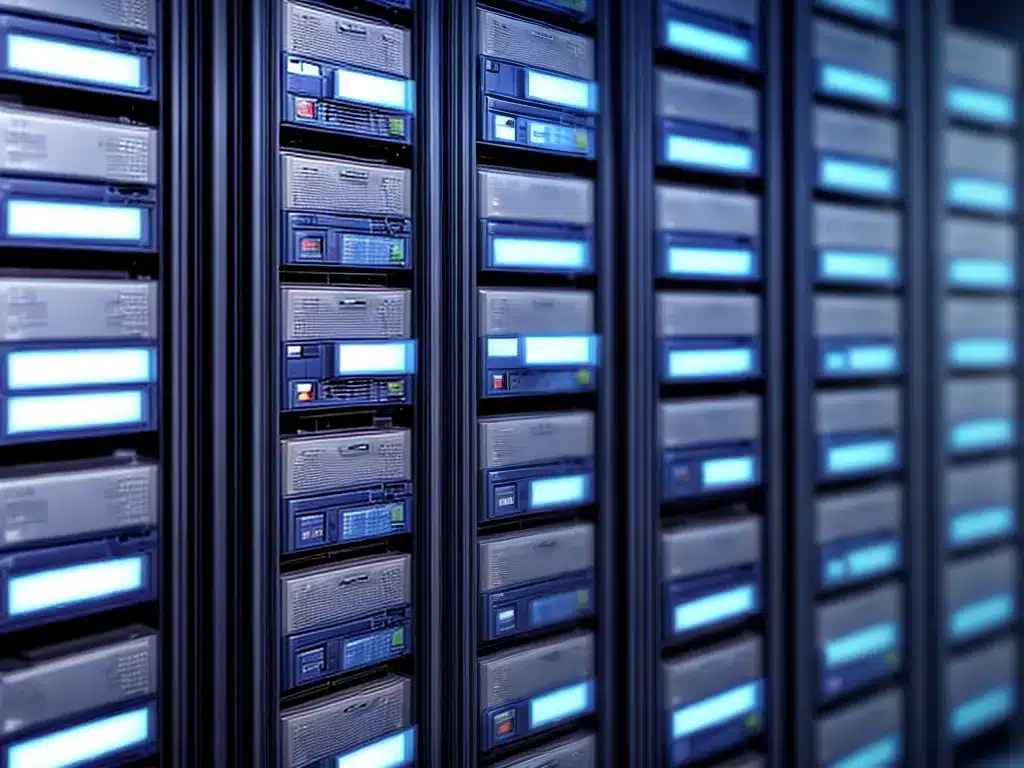
Introduction
As an IT professional working in enterprise environments, implementing robust and reliable backup solutions is one of my top priorities. With data growing exponentially and threats becoming more sophisticated, having an effective data protection strategy in place is critical. In this article, I will provide an in-depth look at backup solutions tailored specifically for distributed enterprise environments.
Challenges of Distributed Environments
Distributed environments present unique data protection challenges that need to be addressed:
-
Geographic separation – Enterprises often have multiple offices, branches, or data centers located in different geographic regions. This physical separation makes centralized backups difficult.
-
Diverse systems – Enterprises typically have a heterogeneous mix of systems like physical servers, virtual machines, SaaS applications, mobile devices, etc. Finding a unified backup approach across these diverse systems can be complex.
-
Compliance requirements – Regulations often mandate how long certain data must be retained and place restrictions around where backups can be stored. These compliance demands must be incorporated into backup planning.
-
Massive data volumes – The volume of business data needing protection continues to grow exponentially. Backup solutions must be able to efficiently handle terabytes or petabytes of enterprise data.
-
24/7 uptime requirements – Enterprises need their systems and data to be available around the clock. Backups cannot disrupt business operations or productivity.
Backup Solution Criteria
To meet the challenges of distributed environments, enterprise backup solutions should provide:
-
Geographically distributed backup targets – Backups should be stored in diverse locations to limit exposure to localized outages. Cloud storage offers an efficient distributed target.
-
Heterogeneous platform support – The solution must be able to protect physical servers, virtual environments, SaaS apps, mobile endpoints, etc. Agnostic platforms provide the most flexibility.
-
Automated policies – Policies should automatically back up endpoints according to compliant retention rules rather than manual intervention. This ensures consistency at scale.
-
Global deduplication – Deduplication minimizes backup storage requirements by eliminating redundant data across distributed systems. Global deduplication works across endpoints.
-
Granular recovery – Quickly restoring lost files, VMs, databases, emails or other items keeps recovery time objectives (RTOs) low. Granular recoveries limit data loss.
-
Encryption – Strong encryption protects backup data in transit and at rest without impacting backup performance. This addresses privacy/compliance needs.
-
Scalability – Solutions must easily scale to handle growing data volumes without disruption. Parallelism and incremental backups optimize resources.
Leading Backup Solutions
Based on the solution criteria, these enterprise backup products stand out:
Veeam
-
Offers VMware and Hyper-V protection with features like instant VM recovery and backup from storage snapshots to reduce impact.
-
Backup repositories can be on-premises or in the cloud (Azure, AWS, etc).
-
Provides immutable backups for ransomware protection and isolated air-gapped repositories.
-
Backup jobs can be chained together for complex workflows.
-
Licensed per-workload or per-VM, scales smoothly while maintaining performance.
Commvault
-
Protects VMs, databases, file shares and a wide array of platforms.
-
Policies enforce retention rules for compliance. Granular scanning identifies sensitive data.
-
Backups can be replicated to distributed targets on-premises or in cloud object storage.
-
Deduplicates globally across all data to optimize efficiency.
-
Dashboard monitors all backup operations and sends alerts for failures.
Cohesity
-
Converged data management platform consolidates siloed backup targets into a centralized solution.
-
Native integration with leading public clouds for sending backup data off-site.
-
Helios web-scale platform provides Google-like visibility into all your backup data globally.
-
Rapid disaster recovery failover to cloud platforms possible in case of site-level failures.
-
Pay-as-you-grow model allows smoothly scaling capacity and features as needed.
Conclusion
Protecting distributed enterprise environments requires backup solutions specifically engineered for scalability, flexibility and resiliency. Leading platforms from vendors like Veeam, Commvault and Cohesity provide the heterogeneous platform support, global deduplication, automated compliance policies, distributed targets and rapid recovery needed to keep these complex environments protected. With robust data protection in place, enterprises can focus on driving innovation and growth.












